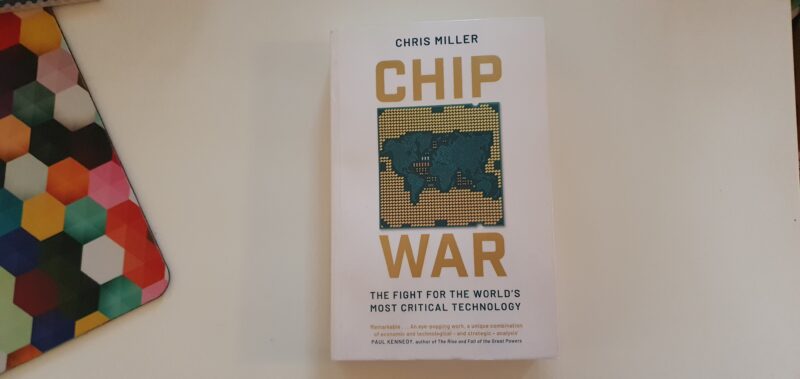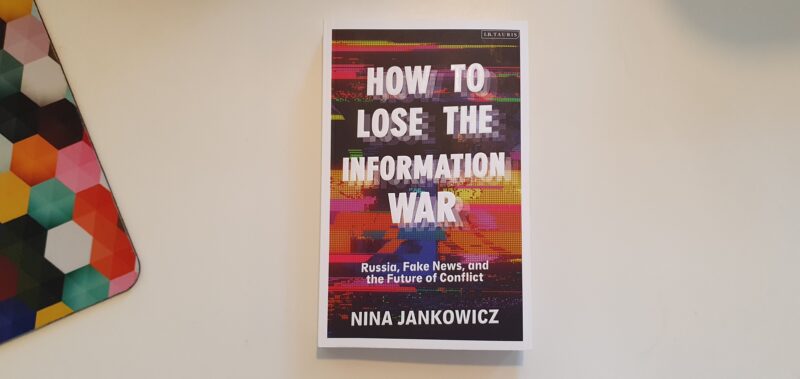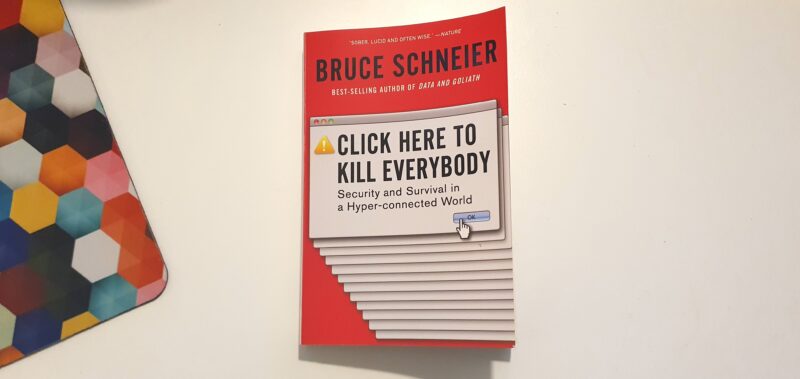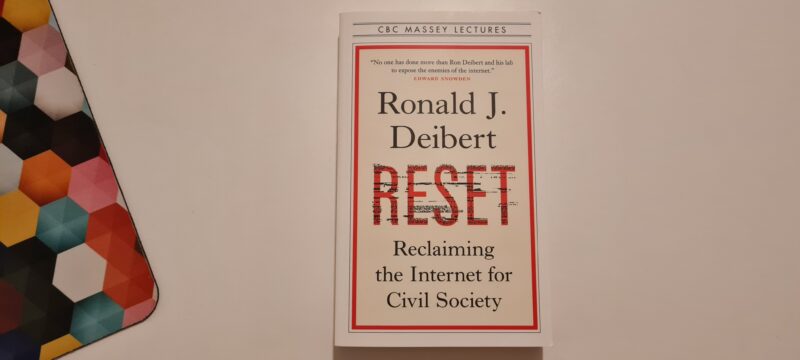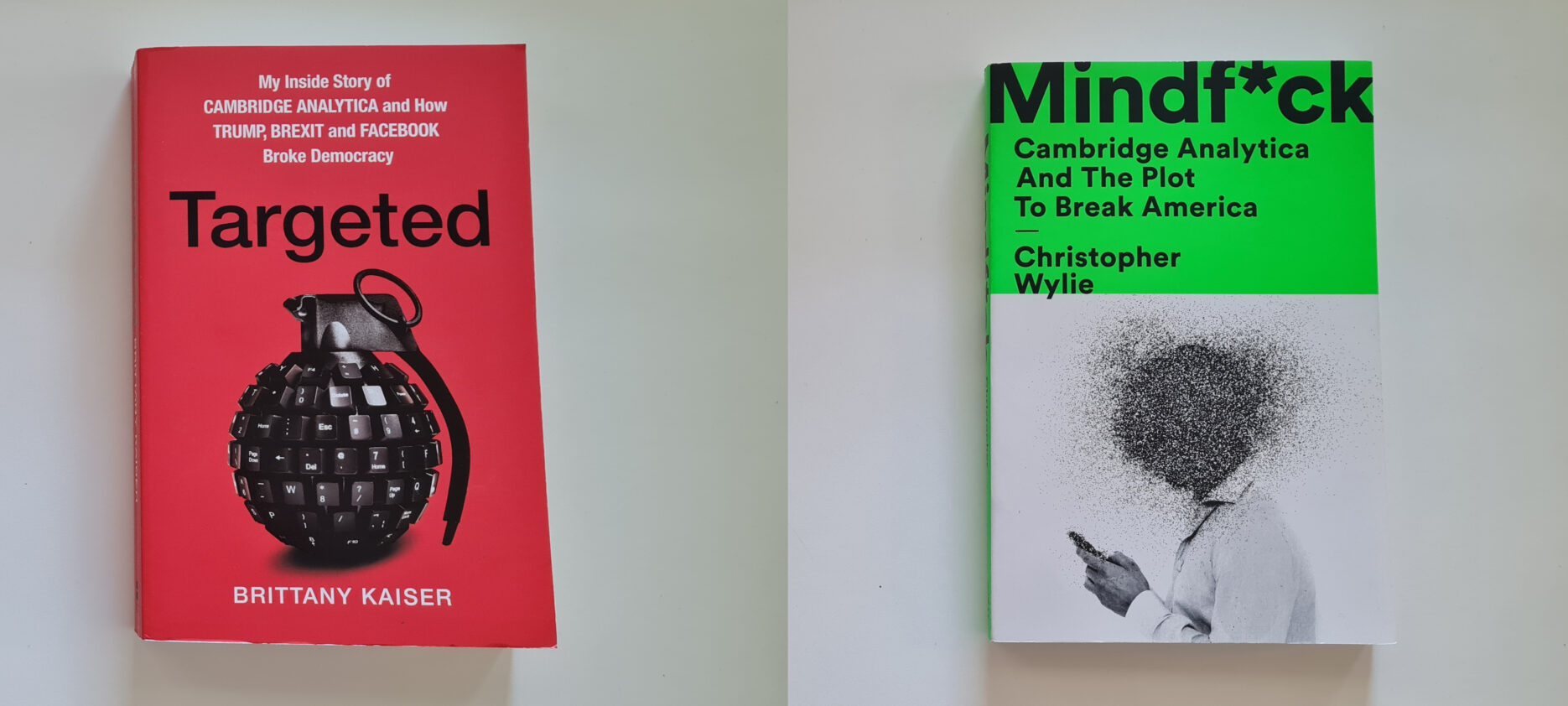Once every couple of years (or months) you come across a topic you’ve never really been interested in, or perhaps haven’t even heard of. Or it’s a topic in the back of your head, that you’ve never been able to verbalize properly before. Suddenly it falls within scope and it is the only thing your mind is focused on for some time. After listening to The Ezra Klein Show with Chris Miller about his book Chip war, this has been the case for me. (Dmitri Alperovitch also talks to Miller on the Geopolitics Decanted podcast.)
Semiconductors, you ask? Vaguely, you’ve heard of compontents crucial to technological infrastructure. Or phones, perhaps? You are right. Semiconductors are omnipresent in a technological society: phones, cars, computers, tablets, certain bins (!), satellites, dishwashers, speakers, washing machines, code locks, medical equipment – you name it. Since the 1950’s they’ve taken over society as a whole and most countries wouldn’t function properly without them. Semiconductors are in many ways the equivalent to oil – without it, no society. Chris Miller tells the story of how semiconductors were created, why they were created, and how they are used.
Really, this is one of the best history books I ever read. And it’s not only about history, it’s not like your usual history book (I love history books)! It contains quite technical details of how semiconductors are constructed, and although it’s far from detailed (because it cannot be), it’s so intruiging and exciting I don’t want to lay down this book. I want it to continue endlessly. There are many aspects of the tech industry and the technological world I simply wish could disappear, so many dismal, awful and depressing aspects that haunt us and seem to increase each year. Read Ron Deibert’s Reset to get the state of the world. Generally, I have no high hopes for the future. In ways I do not really comprehend though, this books inspires hope. Perhaps it’s the implications of this specific piece of equipment, or the creation of the technology, or the suitable use and functions that allure to me.
I cannot stop being impressed, even though I’m aware of the environmental and climate implications, of machines, that produce photolitography, comprised of almost 460.000 components, taking almost 20 years to develop, shooting objects through vacuum approximately 50.000 times each second. How can I not be impressed by the sheer (awesome) ingenuity to create a software program keeping track of every single component in one of the these machines, for it not to stall production? How do you track that many components? Of course I cannot be so impressed I lack the ability to review, but the storytelling and the technical details are impressive.
History of semiconductors and Moore’s law
The semiconductor itself stems from the US. Then it, generally, moved eastwards (BTW, a very cute game) to Japan, South Korea and Taiwan, the two latter the present superpowers in advanced semiconductors. See, there’s a difference between semiconductors and advanced semiconductors. The latter being inserted into machines general, while the later is used in more advanced machines or weapons.
Most likely, you’ve heard of Moore´s law, based on the probablistic relationship between scientific progress and production, uttered by Gordon Moore (BTW, he died in March this year). Ostentatious is the scentific progress, but Miller stresses the workers efforts and import in doubling the number of transistors on a “chip” every two years. Without many dextrious, low wage women this “law” would never have occured.
The anticipated fight between the superpowers: China vs US
A portion of the book is dedicated to the conflict between China and the US, after the subsiding conflict between Japan and US in the (primarily) 1980’s and 1990’s. On the one hand, it’s fascinating, on the other, it’s completely terrifying. The conflicting sides compete for semiconductors, advanced semiconductors even more so, to fill their societies with computers, phones, gadgets and all the other things, but also competing for the military edge. Advanced weapons, semi-autonomous among them, are really scary, from your worst nightmare, and they’re becoming reality (I truly hope Eric Schmidt and Bob Work are right in that autonomous weapons are forbidden in every way and semi-autonomous weapons are subordinated humans).
I’m happy to read that the swing in the US policy towards China changed parts due to Matt Pottinger. It confirms the view I hold of him being a good, knowledgable deputy national advisor. Generally I hold the view that the Trump administration was a disaster for the US (although several politically handpicked staff were talented and good), but this man was fantastic at his job. He lasted approximately 47 Scaramuccis.
Very few companies are actually creating semiconductors, especially the advanced ones (TSMC, Samsung, UMC and GlobalFoundries), and only one create the blueprints, so to speak: ASML. This business is extremely concentrated. Drilling after oil can be done pretty much without advanced equipment, rudimentarily, but creating 14,8 billion transistors on one single chip is almost beyond conception of the mind and takes decades and billions of dollars in investment to complete, not to mention very skilled workers.
Taiwan, together with South Korea and Japan, is at the very centre of this looming conflict. Without Taiwan, approximately 37 % of the advanced chips vanish and it would be disastrous to most of the industrial world, since these chips are part of industrial processes, military equipment (without them, no guidance), servers, and an abundance of other things.
In Taiwan, some people argue they have a “silicon shield” protecting them from Chinese invasion. Why would China want to trigger a conflict, quickly sinking the world economy and advanced societies into a nightmare. Miller, however, argues that this shield is far from a guarantee, and I couldn’t agree more. Taiwan is perceived a province of China and too bold moves from the Taiwanese leadership and China will attack. Unfortunately, the situation is that simple.
Superfluous summary
Well. What can I say? This book is a must-read. If you wish to know more about semiconductors or the state of the world regarding semiconductors – read!
Unfortunately, the book was issued when the CHIPS and Science Act was enacted and new export control measures on semiconductors were implemented, omitting these two very important steps in the conflict between China and the US. If you’re interested, listen to Alperovitch’s discussion with Miller in the aforementioned podcast.
The single best aspect, an underestimated one, of this book’s layout is the short chapters. I cannot stress enough how much I appreciate chapters of approximately 10-15 pages each. For me, reading a book with hundreds of pages belonging to one single chapter isn’t a problem, but I find this layout so much easier, so much more appealing, to digest.
